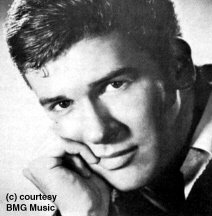Although I should really get over it and shut-up, I feel I must mention Cardiff's successes at the Guardian Student Media Awards. In my defence, it is relevant to this blog because it was also the reason I missed the online lecture - which this blog is officially devoted to. However hard I tried there was no way I was going to get 18 wasted students to get up at the crack of dawn.
Anyway, as a minor consolation for missing the visit of the editor of
Telegraph.co.uk, I did get my forehead in today's Guardian. Some sub-editor somewhere decided he'd crop just enough of the picture to cut me out. He had clearly used the 'rule of thirds' and decided that my eyeline wasn't appropriate. Or maybe I ran over his/her dog a few years ago and this is their angry retribution.
As regards something more appropriate, I had a useful chat with someone who had interviewed me some time ago, and who I've been hounding for feedback ever since (I didn't get the job by the way, though that's fairly obvious from my demand for feedback). One particular point came up in my feedback which struck me.
During the interview he had asked me how I would deal with door-knocking - would I be willing to chase after a parent whose child had died of meningitus the day before?
I stumbled around the question, having foolishly only planned for a
different moral dilemma to answer. I considered my options: 1) play the hard-assed news hound role, who'll do anything for a story, or 2) pay attention to my instinct, which from personal experience was telling me that a grieving parent doesn't want a tripod and boom mic being set up in their front garden.
In the end I fumbled towards a compromise - I'd speak to the school, and anyone else that would speak to me, maybe health authority. I leaned towards option 2 though, and certainly not with as much assertion and confidence as I should have done. As I suspected, I didn't get the answer right.
OK, so he said there wasn't a right answer. But his view was that you should try and speak to the neighbour, the uncle, the grandparents or someone closely connected, and then if you think it's necessary, go for the parents.
His thinking was that for every 9 times that you're told to stop being such an ambulance-chasing parasite, there'll be one time where the parents are desperate to tell the press that the school have let them down, or something similar.
Alongside that argument, he said that competition has to be considered as well - if you didn't door knock, you could miss a massive story and you'll be one step behind.
Although door-knocking is certainly something that I've considered, it's still not something I've reached my own conclusion on. It's also one of the many factors that led me to broadcast journalism rather than print - my experience of local print was that door-knocking for a photo or a quote was a regular occurence, whereas in broadcast it's a rarity. So in a way, I skipped the issue - or so I thought.
In my view, it's a difficult line between working in the public interest, and working in the company's interest. With the first argument put forward by my interviewer (that they might be grateful), I can see his public service claim, and I'm inclined to agree. If the parent wants answers, the chances are that other parents will be affected.
But with the second point (that the realities of the industry mean that it's competitive, so these things have to be done), I'm not sure if that's a strong enough argument. It certainly won't help the public image of a media that invades privacy and devours other people's misery (not an image I agree with incidentally, by an image problem nonetheless).
Maybe I'm just a young innocent whippersnapper, only 6 weeks into journalism boot-camp, and only a few weeks real life experience, but once you take the position of doing things in the name of competition, it can lead you into a mirky place. And in my view, that mirky hole already contains a fair few print journalists.






